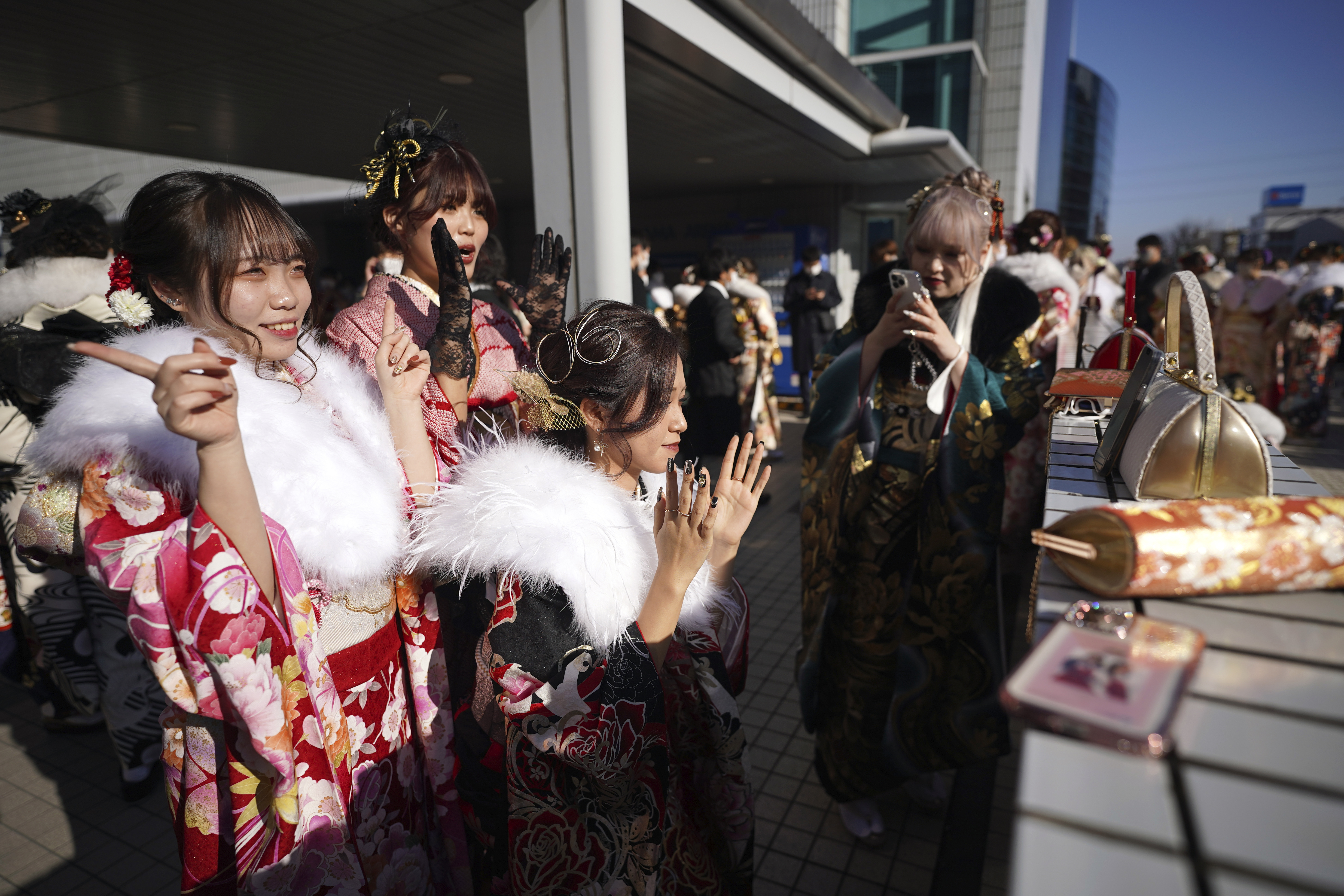Women's Rights & Issues
Related: About this forumWhy money will not be enough to address Japan's baby crisis
Why money will not be enough to address Japan’s baby crisis
Japanese women are having children later in life worried that motherhood will end their careers.
 ?resize=770%2C513&quality=80
?resize=770%2C513&quality=80
Today's Japanese women have more opportunities for education and career advancement then generations before them [File: Eugene Hoshiko/AP Photo]
By David McElhinney
Published On 28 Feb 202328 Feb 2023
Tokyo, Japan – Chika Hashimoto, a 23-year-old who recently graduated from Tokyo’s Temple University, is not averse to having a family in the future, but nor is she jumping at the opportunity. “It is definitely not my first choice,” she told Al Jazeera. “Fulfilling my career and enjoying my freedom is far more important than getting married and having children.” Hashimoto cites economic concerns as the primary reason why she, and many other young Japanese women, are reevaluating a future centred around family life. “Raising a child really costs a lot of money,” she said. “It’s not easy for Japanese women to balance having a career and raising a family because we will have to choose between them.”
Japan is facing one of the world’s major demographic crises, with the number of annual births dipping below 800,000 for the first time in 2022. The current birth rate of 1.34 is well below the 2.07 necessary to keep the population stable, meaning Japan’s population could drop from 125 million to 88 million by 2065. Japan’s declining birth rate came into focus when Prime Minister Fumio Kishida used uncharacteristically stern language in a recent address to parliament. “Japan is on the verge of whether we can continue to function as a society,” he said in the 45-minute speech, adding that it was a “now or never moment” for addressing the nation’s population decline. Japan is the third most expensive country to raise a child, behind only China and South Korea, despite infamously stagnant wages. The average annual salary, which has barely increased since the late 1990s, is about $39,000, compared with an OECD average of almost $50,000. Furthermore, Japanese women earned 21.1 percent less than their male counterparts in 2021, nearly double the average wage gap in developed economies.
 ?w=770&resize=770%2C514&quality=80
?w=770&resize=770%2C514&quality=80
Japanese women are getting married and having children later in life, and that means smaller families [File: Gregorio Borgia/AP Photo]
. . . . .
‘Led by old men’
Maki Kitahara, 37, tried having kids with her now ex-husband several years ago. “But to be honest, I feared that I would lose my career,” she told Al Jazeera. “I often heard male managers speaking about marriage and pregnancy of women ruining the HR plan, which included skill development, job rotation and promotion. This is where my fear came from.” Driven by career ambition and a desire to explore the world, Kitahara never really aligned with society’s view of the traditional Japanese wife and mother. This led, in part, to her divorce and a permanent move to Dubai, where she remotely runs a leadership training course for Japanese women through her Fukuoka-based company, Global Synergy Education Consulting Group.
. . . .
In tandem with growing education opportunities and career ambitions — and in an echo of the situation in other advanced economies — Japanese women who are getting married and having children are doing so later in life, which typically means they are unlikely to be able to have larger families. According to the Ministry of Health, Labour and Welfare, the average age of mothers giving birth to their first child rose to 30.9 in 2021, the highest since records began in 1950. Yuko Kawanishi, a sociology professor at Tokyo’s Lakeland University, believes the employment system — broadly defined by seiki (full-time workers) and hiseiki (contract workers) — is a key contributor to Japan’s demographic decline. The number of mothers with children in the workforce is rising, hitting 76 percent in 2021, 20 percentage points higher than in 2004. Yet, only 30 percent of all mothers are permanently employed.
. . . .
https://www.aljazeera.com/news/2023/2/28/why-money-will-not-be-enough-to-address-japans-demographic-crisis